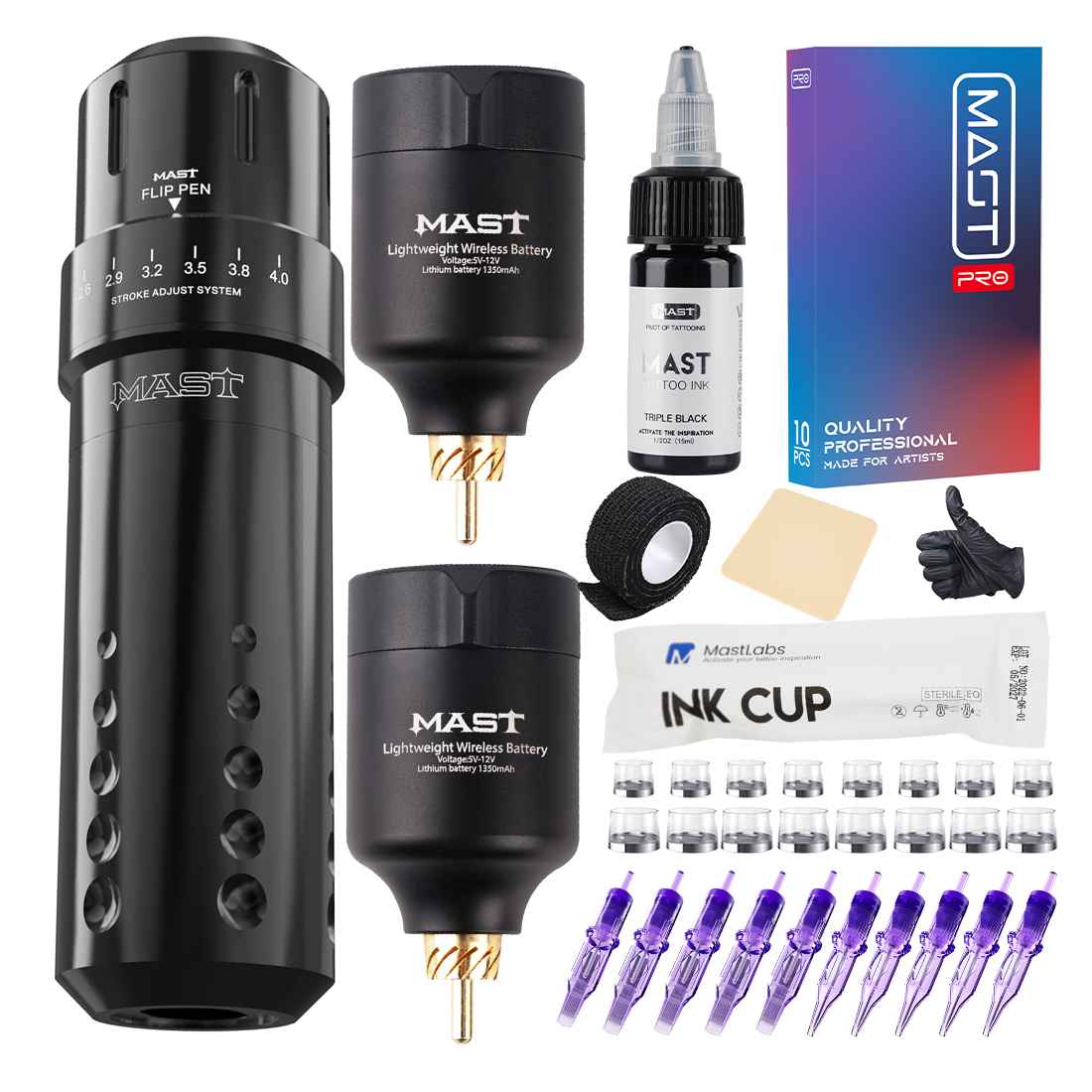Tattoos have become an increasingly popular form of self-expression, especially among young people.
From tiny minimalist designs to large, intricate pieces, tattoos can hold deep personal meaning or simply be a fun way to decorate the body.
However, the question “Can You Be 14 to Get a Tattoo?” remains a topic of debate.
While age restrictions for tattoos vary across different countries and states, most have laws that require individuals to be at least 18 years old to get a tattoo without parental consent.
But what about younger individuals who want to get inked? Is it legal for them to do so? And what are the potential risks and consequences of underage tattoos?
In this blog post, we’ll take a closer look at the legalities of underage tattoos and the various age restrictions that exist in different parts of the world.
We’ll explore the role of parental consent in the tattoo process, as well as the potential health risks and long-term consequences of getting a tattoo at a young age.
By the end of this guide, you’ll have a better understanding of the laws surrounding tattoos for minors and be able to make an informed decision about whether or not to get a tattoo at the age of 14.
Legal age for getting a tattoo
The legal age for getting a tattoo varies depending on the country and state you live in.
In the United States, each state has its own laws and regulations regarding the minimum age for getting a tattoo.
While most states require individuals to be at least 18 years old to get a tattoo without parental consent, some states allow minors to get tattoos with parental permission at younger ages.
For example, in New York, the legal age for getting a tattoo is 18, but minors as young as 16 can get tattoos with parental consent.
Meanwhile, in California, the legal age for getting a tattoo without parental consent is 18, but minors as young as 14 can get tattoos with parental permission.
It’s important to note that these laws may vary depending on the city or county you live in, so it’s always a good idea to check with your local government before getting a tattoo.
In addition to state and local laws, there are also penalties for violating tattoo age restrictions.
In some states, tattoo artists who violate age restrictions may face fines or even lose their license to practice.
Minors who get tattoos without parental consent may also face legal consequences, such as fines or community service.
Outside of the United States, the legal age for getting a tattoo varies widely.
In some countries, such as South Korea and Japan, getting a tattoo is technically illegal unless you’re a licensed medical professional.
Other countries, such as France and Spain, have a legal age of 18 for getting a tattoo.
In Australia, the legal age for getting a tattoo is also 18, but minors can get tattoos with parental consent in some states.
Overall, it’s important to be aware of the legal age for getting a tattoo in your area and to understand the potential consequences of violating these age restrictions.
Make sure to do your research and find a reputable tattoo artist who follows all relevant regulations and guidelines.
Also Read: How old do I have to be to get a tattoo
Parental consent for tattoos
Parental consent is a crucial aspect of the tattoo process for minors.
In most states in the United States, minors under the age of 18 are not legally allowed to get a tattoo without parental consent.
This means that a parent or legal guardian must be present during the tattoo process and sign a consent form before the tattoo can be applied.
The legal requirements for parental consent can vary from state to state.
In some states, such as Georgia and Idaho, minors as young as 16 can get tattoos with parental consent.
Other states, such as Kansas and Minnesota, allow minors as young as 14 to get tattoos with parental consent.
It’s important to note that even in states where parental consent is allowed, individual tattoo shops may have their own policies that require individuals to be 18 or older.
While parental consent can allow minors to get tattoos, there are also risks and benefits to consider.
On the one hand, parental consent can provide a level of oversight and guidance for minors who are considering getting a tattoo.
Parents can help their children choose a reputable tattoo artist and discuss the potential risks and long-term consequences of getting a tattoo.
On the other hand, there are also potential risks associated with parental consent.
For example, some parents may not fully understand the risks of getting a tattoo and may give their consent without fully considering the consequences.
Additionally, minors who get tattoos with parental consent may still face social or cultural stigma for their decision.
It’s also important to note that tattoo artists have a responsibility to ensure that they are following all relevant regulations and guidelines when it comes to working with minors.
This may include having the parent or legal guardian sign a consent form and making sure that the tattoo is being applied in a safe and sanitary manner.
Overall, parental consent is an important aspect of the tattoo process for minors.
It can provide a level of oversight and guidance, but it’s important to carefully consider the risks and benefits before making a decision.
If you’re a minor considering getting a tattoo, make sure to talk to your parents or legal guardian and find a reputable tattoo artist who follows all relevant regulations and guidelines.
Also Read: Is it okay to have a tattoo at 16?
Health risks of underage tattoos
Getting a tattoo at a young age can pose several health risks that are not as common in adults.
Here’s what you need to know about the potential health risks of underage tattoos:
Minors may be more prone to infections due to their weaker immune systems, which can make it harder for their bodies to fight off bacteria that may enter the wound during the tattooing process.
This can lead to serious complications such as blood poisoning, scarring, and even death in extreme cases.
Young people’s skin may also be more sensitive and reactive to tattoo ink, which can cause allergic reactions, rashes, or other skin irritations.
Additionally, minors may be more likely to develop keloids, which are raised scars that can form after a tattoo has healed.
Another potential risk of getting a tattoo at a young age is that the tattoo may not age well over time.
As a minor grows and their body changes, the tattoo may stretch, fade, or become distorted, resulting in a less attractive appearance.
In addition to these immediate health risks, underage tattoos can also have long-term consequences.
For example, some tattoos may hinder a minor’s ability to get a job or join certain professions later in life.
Additionally, if a minor later decides they no longer want their tattoo, they may need to undergo expensive and painful tattoo removal procedures.
Overall, it’s important to carefully consider the potential health risks of getting a tattoo at a young age before making a decision.
If you do decide to get a tattoo as a minor, it’s crucial to choose a reputable and experienced tattoo artist who follows all safety protocols and guidelines.
Additionally, you should always follow aftercare instructions to minimize the risk of infection or other complications.
If you later regret your tattoo, consult a professional tattoo removal specialist who can advise you on the best options for your particular case.
Minors may not fully understand the potential risks and consequences of getting a tattoo, and may make impulsive decisions that they later regret.
This can lead to emotional distress, especially if the tattoo is in a visible location.
If a minor lies about their age to get a tattoo without parental consent, they may be more reluctant to seek medical help if they experience any adverse reactions or complications, which can exacerbate the health risks.
Depending on the location of the tattoo, minors may also be at risk of developing skin cancer later in life, as tattoos can make it harder to spot unusual moles or growths on the skin.
While tattoo removal is an option for those who regret their tattoos, the process can be lengthy, painful, and expensive, and may not always result in complete removal of the tattoo.
Additionally, tattoo removal can cause scarring and other complications, which can be especially concerning for minors whose bodies are still developing.
Overall, while there are certainly risks associated with getting a tattoo at any age, minors may be more vulnerable to certain health risks and consequences due to their age and developmental stage.
It’s important for young people to carefully weigh the pros and cons of getting a tattoo and to discuss their decision with a trusted adult before proceeding.
Also Read: Is 17 a good age to get a tattoo?
Alternatives to tattoos for minors
While tattoos may be a popular form of self-expression, they are not the only option available for minors who are interested in body modifications.
Here are a few alternatives to consider:
1. Piercings
Piercings are a common alternative to tattoos, and can be done in a variety of locations on the body, including the ears, nose, eyebrows, and tongue.
While piercings can be less permanent than tattoos, they still require careful aftercare to prevent infection and other complications.
2. Temporary tattoos
For those who want to try out a tattoo design before committing to it permanently, temporary tattoos can be a fun and low-risk option.
Temporary tattoos can be purchased online or at many retail stores, and can last anywhere from a few days to a few weeks, depending on the type of tattoo and how well it is cared for.
3. Hair dye
While not technically a body modification, dyeing one’s hair can be a fun and creative way to change up one’s appearance.
Hair dye comes in a variety of colors and styles, and can be done at home or at a salon.
4. Henna
Henna is a type of temporary tattoo that is made from a plant-based paste. It is often used for decorative purposes in cultural and religious ceremonies, but can also be used as a temporary body art form.
Henna tattoos can last for several weeks, but do require careful aftercare to prevent fading or smudging.
5. Body paint
Body paint is a temporary way to decorate the body, and can be used to create intricate designs and patterns.
Body paint can be applied with brushes or airbrushes, and can be removed with soap and water.
6. Body jewels
Body jewels are a type of adhesive decoration that can be placed on the skin.
They come in a variety of shapes and sizes, and can be used to create unique and eye-catching designs.
7. Scarification
Scarification is a form of body modification that involves intentionally scarring the skin to create a specific pattern or design.
While scarification can be a more permanent form of body modification, it also carries a higher risk of infection and other complications.
While these alternatives may be less permanent than tattoos, they still require careful consideration and research before proceeding.
It’s also important to note that the legality of these alternatives may vary by location and age, so it’s always a good idea to check local laws and regulations before making any decisions.
Additionally, it’s important to choose a reputable and experienced artist or practitioner to ensure the safest and highest-quality results.
Also Read: Will my tattoo stretch if I get it at 18?
Social stigma of underage tattoos
While getting a tattoo may be a popular choice among young people, there is still a significant amount of social stigma attached to underage tattoos.
Many people view tattoos as a form of self-expression or rebellion, and may not take kindly to minors who get tattoos without their parents’ permission.
In some cases, this can lead to bullying or social ostracization, which can have a negative impact on a young person’s mental health and well-being.
However, the social consequences of underage tattoos can extend far beyond just peer pressure and social stigma.
In many cases, tattoos can also have a negative impact on future job prospects and relationships.
Some employers may view tattoos as unprofessional or even offensive, and may be hesitant to hire individuals who have visible tattoos.
Additionally, tattoos can also impact personal relationships, as some people may not be attracted to individuals with tattoos or may view tattoos as a sign of immaturity or recklessness.
Given the potential social consequences of underage tattoos, it’s important for minors to carefully consider their options before getting a tattoo.
While tattoos can be a powerful form of self-expression, they are also a permanent decision that can have long-lasting effects on a person’s life.
For those who are not yet ready to commit to a tattoo, there are a variety of alternatives to consider, such as body paint or temporary tattoos.
Ultimately, the decision to get a tattoo is a personal one, and should be made carefully and with full consideration of the potential risks and benefits.
By doing their research, weighing their options, and carefully considering the potential social consequences, minors can make an informed decision about whether or not to get a tattoo.
Also Read: Can you get a tattoo at 15?
Tattoo removal for minors
Tattoo removal can be a complicated and painful process, and it is important for minors to carefully consider their options before deciding to get a tattoo.
In some cases, minors may decide that they no longer want their tattoo, either due to changing tastes or due to the negative social consequences that can come with having a visible tattoo.
In these cases, tattoo removal may be a viable option.
The process of tattoo removal typically involves the use of lasers or other specialized equipment to break up the ink particles in the skin.
While this process can be effective, it can also be painful and may cause scarring or other complications.
Additionally, tattoo removal can be expensive, and may not be covered by insurance.
For minors who are considering tattoo removal, it is important to carefully weigh the potential risks and benefits of the procedure.
In some cases, the risks and complications of tattoo removal may outweigh the potential benefits, and it may be better to simply keep the tattoo and learn to live with it.
In other cases, tattoo removal may be a necessary step in order to move on from a regrettable decision.
Ultimately, the decision to get a tattoo or to have one removed is a personal one, and should be made carefully and with full consideration of the potential risks and benefits.
By doing their research, consulting with a reputable tattoo artist or medical professional, and carefully weighing their options, minors can make an informed decision about whether or not to get a tattoo, and can take steps to remove it if necessary.
Also Read: Pros and cons of getting a tattoo at 16
FAQs
Can a 14-year-old get a tattoo in Ontario, Canada?
In Ontario, Canada, the legal age to get a tattoo without parental consent is 18.
Minors who are 16 or 17 years old can get a tattoo in Ontario with written consent from a parent or legal guardian.
Some tattoo studios may have additional age restrictions, such as requiring the minor to be at least 16 or 17 years old even with parental consent.
It is advisable to verify the specific regulations of the tattoo studio and follow their guidelines.
Can a 12-year-old get a tattoo in Georgia?
In Georgia, the legal age to get a tattoo without parental consent is 18.
Minors who are 17 years old or younger can obtain a tattoo in Georgia with written consent from a parent or legal guardian.
However, it is crucial to note that tattoo studios may have their own policies and may require that the minor be at least a certain age, such as 16 or 17 years old, even with parental consent.
Conclusion
We’ve seen that the answer to the question “Can You Be 14 to Get a Tattoo?” is one that should not be taken lightly.
While tattoos may be a popular form of self-expression among young people, there are many important factors to consider before going under the needle.
From the potential health risks and complications, to the legal restrictions and social stigma that can come with having a tattoo as a minor, there are many reasons why young people should think carefully before getting a tattoo.
Throughout this article, we have explored the various laws and regulations surrounding tattoos for minors, the potential health risks of getting a tattoo at a young age, and the importance of carefully considering alternative options.
” have also discussed the process of tattoo removal, and the potential risks and complications associated with this procedure.
At the end of the day, the decision to get a tattoo is a personal one, and should be made with full consideration of the potential risks and benefits.






